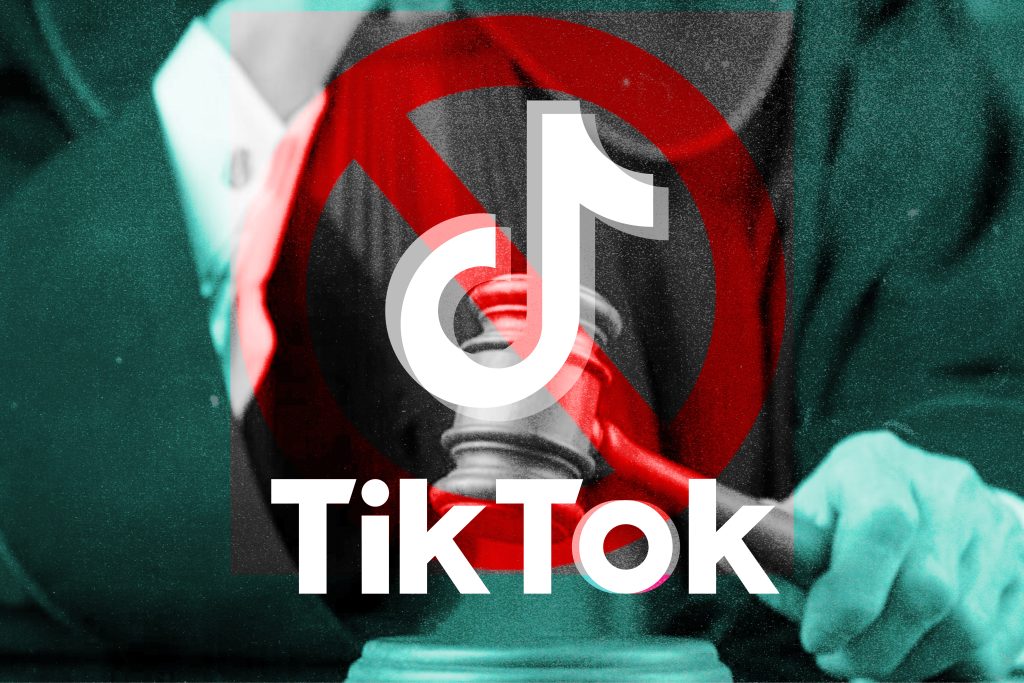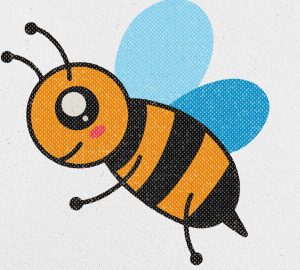
Earlier this March, the House overwhelmingly voted in favor of banning TikTok — 352 to 65. The bill was approved by the Senate yesterday, and the bipartisan consensus could drastically affect the way millions of Americans interact with the social media mogul. The bill was given the long-winded name of “Protecting Americans from Foreign Adversary Controlled Applications Act.” Not super catchy, but it quickly caught on with the Congressmen who were eager to get it signed. Even President Biden vowed to sign the bill. So what exactly is this bill and how could it affect you?
American politicians have become increasingly concerned with TikTok’s relationship between the Chinese government and US data. The company has constantly been hounded over this dilemma, most famously in last year’s congressional hearing. In it, the politicians alleged that TikTok might be handing off data to the Chinese Communist Party. While the company vehemently denies those accusations, the worries continue to persist. This bill will require Byte Dance, the company that owns TikTok, to sell it or risk being banned from the app store. With TikTok’s uncertain fate, there is a lot on the line.
A Home For Activism & Virality
There is no denying that our generation, Gen Z, heavily uses TikTok. We watch dances, skits, reviews — you name it, we watch it! Similar to many other social media apps, it certainly has its downfalls. It can be used to dole out conspiracies and harmful trends, and can easily spread misinformation. The app has security concerns regarding data, as do other apps like Meta and X. In that regard, it’s nothing new. However, TikTok has become much more than another useless social media app. It has been a huge factor in businesses and careers, and it is at the forefront of domestic change.
Since its inception, the app has been used as a vehicle for activists to get their message out. However, no year has demonstrated the power of this platform like 2020. In the wake of the Black Lives Matter Movement, after the deaths of Breonna Taylor and George Floyd, activists reached for their phones to organize. They recorded their experiences at protests and urged others to organize, get involved, and educate, and it all took place on TikTok. According to Katherine Hosie of Reach 3, a technology marketing research company, 57% of Gen Z say they get their news from TikTok and 77% of all users say TikTok is where they learned about politics and social justice.
Black and Latino users were even more likely to utilize social media during this time. According to the Pew Research Center, 45% of Black Americans and 46% of Latino Americans looked to social media to find out about rallies and protests compared to 29% of White users. These statistics become even more emboldened when looking at specific age demographics, with 79% of Black users aged 18 to 49 engaging in political activities after they saw them on social media. TikTok is a major platform for people of color to educate their communities on the subjects they were never taught and how to change these injustices. If it weren’t for this platform in 2020, many would still have reactionary biases toward the BLM movement and many wouldn’t have been encouraged to protest.
As we are in the midst of another political movement, taking away this platform could greatly impact the visibility of pressing issues. Many users have similarly weaponized TikTok to bring light to the atrocities in Palestine. As mainstream media takes the side of genocide, it’s more important than ever to have platforms like TikTok. As of December 2023, #freepalestine has over 30 billion views. Politicians have once again accused TikTok of inciting violence this time, but the company has hit back with the backing of independent polls that young people just simply support Palestine. We live in a unique time where the victims of violence can film the conditions they live in. There are young journalists in Gaza who pick up their phones and record a first-hand account of what is happening on the ground. No propaganda, no lies, just the truth of their experience. Salma Shawa, a Gaza-born creator, has always used her platform to document Israel’s atrocities. She’s done work to strip back her viewers’ reactionary understandings of life in Gaza, especially as a woman, and has even filmed the aftermath of bombings. As someone whose family and life are at the helm of Israel’s regime, she’s noted that coverage on TikTok is much more accurate than mainstream media’s.
Social media platforms like Meta and TikTok have been pressured by Israel and the EU to take down what they deemed “disinformation and hate.” Both of them complied, with TikTok taking down nearly a million videos. They are still a corporation. It is not TikTok itself that’s an important entity, but more so the creators and minds that have made a home on the platform. TikTok’s competitor, Meta, has been the main focus for activists. Especially with Meta’s hand in Myanmar’s genocide, activists aren’t quick to trust the company’s motives. Human Rights Watch came out in December with an investigation claiming Meta has been overwhelmingly silencing Pro-Palestinian voices. Their findings showed that out of 1,050 videos Meta took down, 1,049 were peaceful content in support of Palestine. Only one was in support of Israel. In a sea of platforms partaking in censorship, TikTok is still the most viable option for activists.
TikTok has also become a make-or-break factor in one’s career. Businesses are heavily dependent on the app, with an estimated 5 million businesses relying on the platform. Reaching your target market is crucial, and TikTok has made that process much smoother and more viable than ever before. Independent musicians also have the platform to thank for boosting their careers. Artists like Doja Cat, Lil Nas X, and PinkPantheress got a chance at fame after their songs were widely used on the site. The cycle doesn’t stop with them though. Los Angeles-based duo, Flyana Boss, opened for Janelle Monae after their song “You Wish” went viral. This platform has become a staple for success in the US, with an astonishing $24.2 billion going toward the gross domestic product in 2023.
Peeling Back The Curtain
If this is a platform that has mostly had an overall positive outcome for most, then what benefit is there in banning it? What is the true motive for this bill?
TikTok’s other competitors are also guilty of security concerns. Meta had to face Congress in 2021 for similar accusations and they have not improved, with CNN reporting Meta’s involvement in illegal data processing in Europe. X, which was acquired by Elon Musk in 2022, has gone into a rapid decline. The billionaire’s actions to maintain “free speech” have resulted in a rise in hate across the platform, causing many advertisers to pull away. This comes as no surprise, as Musk himself is known for tweeting anti-semitic conspiracies, and is responsible for reinstating dangerous figures like Neo-Nazi Andrew Anglin.
Why is there not a bill pushing to change or ban these platforms when they demonstrate either identical or more harmful behavior?
Politicians have something to lose by reprimanding TikTok’s competitors. Congresspeople such as Nancy Pelosi and Josh Gottheimer are known to have had stock in Meta as recently as 2018. This comes as no surprise, as the New York Times reported in 2022 that 97 members trade stock in companies that directly align with their committees. It’s a conflict of interest. Punishing TikTok only fuels the resurgence in xenophobic rhetoric as China threatens America’s economic lead. Politicians can shift the Americans’ focus from security concerns to the long-standing fear of communism, distracting from the unethical behaviors they may be partaking in themselves.
So much hypocrisy and harm lies beneath this decision to ban TikTok. As we peel back the layers, the situation becomes so messy. From conflicts of interest to ongoing atrocities, this conversation is far-reaching. One thing becomes simple, though. TikTok is much more than a dance trend app. It’s a place where many have learned, unlearned, and sparked change. No other platform has been this safe of a place to thrive politically, economically, and artistically. One thing is clear: Regardless of the bill, TikTok should stay.

























